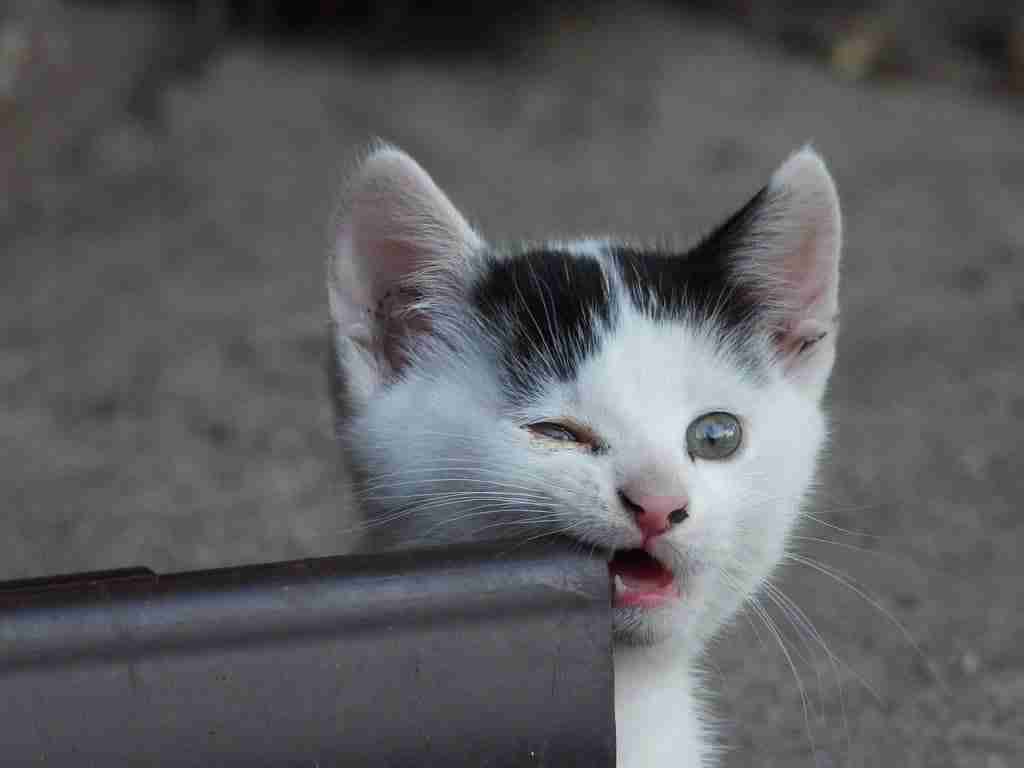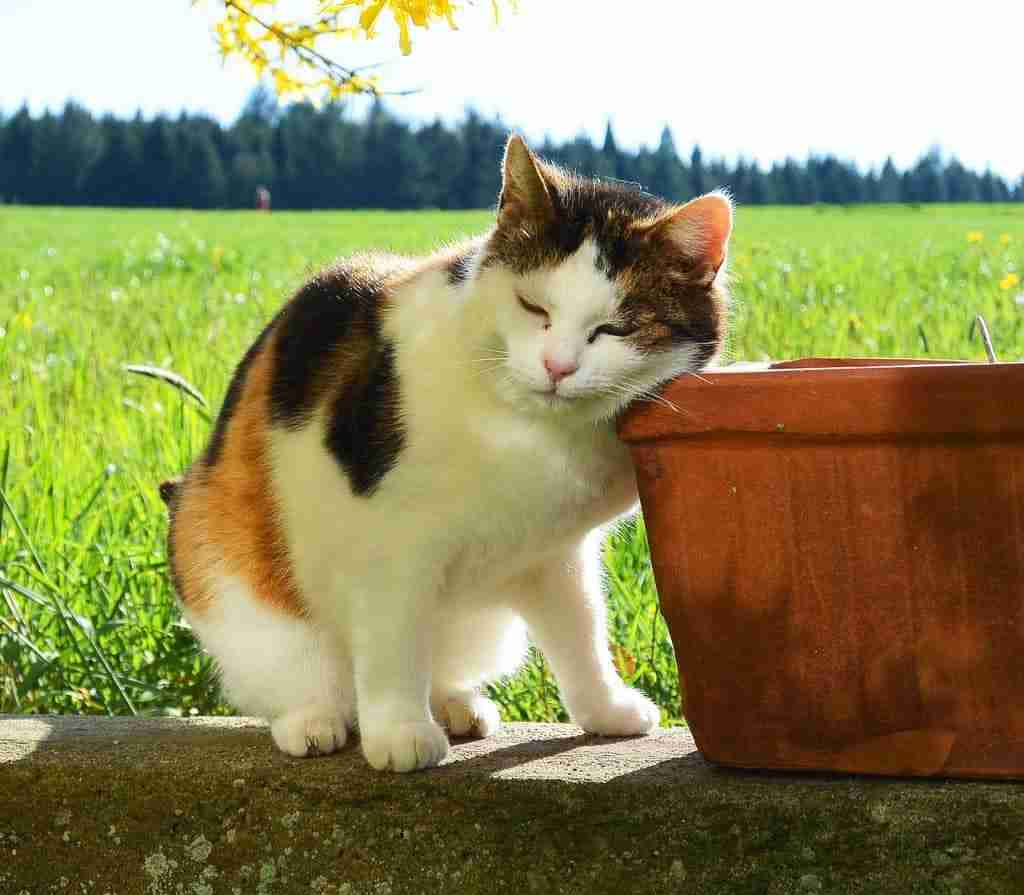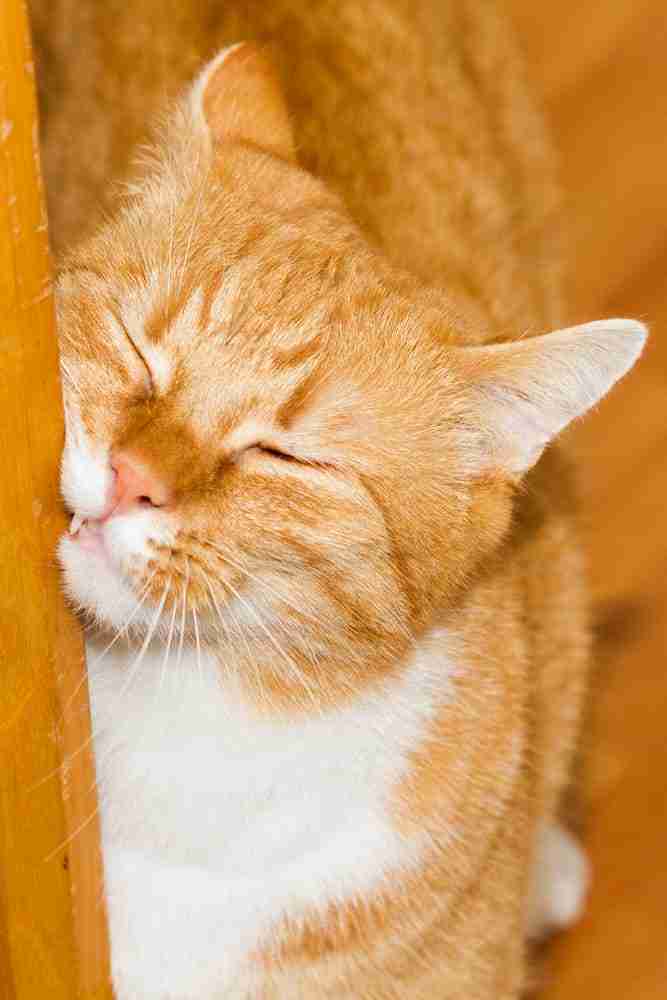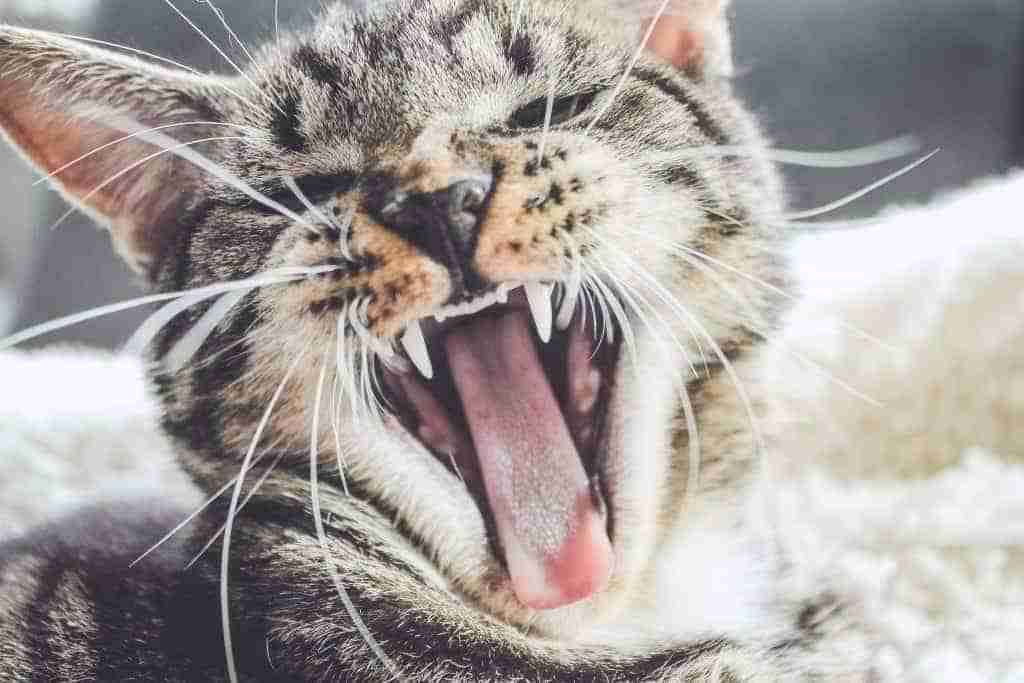You’re sitting on the couch catching up on your favorite show, and your cat decides to join you. She jumps onto your lap, leaning into your chest, looking up at your face.
She starts rubbing her chin up against your face, and you feel her teeth gliding against your skin.
Your kitty loves you for sure, but why do cats rub their teeth on you? It’s a sign of affection, but why do they do it?
Cats are domesticated, but they still rely on their survival instincts. By rubbing their teeth on you, they secrete their scent onto your cheeks, marking you as their territory and possession.
The reality is your cat doesn’t think you own it; it believes it owns you. Your cat relies on you for everything in its life and marking you with its scent lets all the other kitty’s in the neighborhood know you’re off-limits.
Why Does Your Cat Rub Its Teeth on You?

As your cat rubs its teeth and cheeks on you, they transfer their scent. Some cats smell more pungent than others, but you’ll need to take the compliment in stride.
The scent glands in the mouth, chin, and cheeks of your cat are more potent if you don’t have the feline “fixed.” However, most responsible pet owners neuter or pay their animals, preventing the scent from getting too strong as the cat ages.
When cats exhibit this behavior, it’s a way of them telling you you’re worthy of their affection and that you belong to them. It’s an endearing process that all cat owners love.
If you have more than one cat at home, you’ll notice that your pets also run their cheeks on each other. Think of it as the French kissing each other on the cheek when they say hello.
While most cats rub their cheeks on you, some cats also rub their teeth over your skin. This action also serves the same purpose. Cats have scent glands in their mouth, and they pass on their scent by rubbing it on you with their teeth.
What Does It Mean When Your Cat Rubs Its Face Against You?

If your cat is rubbing up against you, they’re trying to rub their scent on you. Your cat’s scent contains pheromones that other animals use to identify the cat rubbing up against them or an object.
Most cats have a unique pheromone profile that makes them identifiable to the other cats in your household and the neighborhood.
If you see your cat rubbing up against furniture and surfaces around your home, they’re claiming them as their territory.
As humans, we can also detect pheromones from our partners. They are the triggers that set off or dopamine and serotonin, giving that “feel-good” sensation when we’re around someone we love.
However, humans can’t detect pheromones in scent the way cats can. Your cat’s hypersensitive sense of smell lets them detect more elements of the secretions than we can ever think of imagining.
What is “Bunting,” and Why Does My Cat Do It?
Sometimes, your cat might join you on the couch, and they start rubbing the corner of their mouth on you. This odd behavior is known as “bunting.” Seeing your cats wipe their mouth on you or the furniture around your home might seem peculiar.
Some cats might even rub their mouths on the sides of the TV or laptop while you’re working.
Your cat’s activity acts as a sort of timestamp for other cats in the house, letting them know when they were there with you last. Feral cats also do this in the wild. It’s a method to allow interested parties to find them. After all, your cat can’t use a cellphone.
Your cat doesn’t have to do this in your home, but they do it anyway. As mentioned, cats live instinctively, and it’s a natural part of being a cat to leave your scent everywhere they go.
All cats exhibit bunting behavior, but it’s more common in males. Since male cats are more likely to be territorial, it makes sense that they bunt more than females.
Some cats may also start bunting to calm their anxiety. If you bring a cat home for the first time and find them bunting everywhere, it’s a sign that they’re getting to know their new living quarters.

What are the Perioral Glands?
Your cat has scent glands everywhere, in its cheeks, mouth, and rear-end. The two scent glands located in the corners of cats’ mouths are what they use for bunting. The “perioral glands” produce a territory-marking scent, and that’s why your cat loves rubbing their teeth on you.
They draw back the corner of the mouth to expose the gland, at the same time exposing their teeth. As they rub, they slide their teeth across you to spread the scent.
Cats mark territory to let other cats know they’re around, and if your cat detects your running low on the scent, they come over for a round of bunting to top you up.
Do Cats Smell with Their Mouths?
It might surprise you to learn that cats smell with their mouths. Sure, they also smell with their nose, but they also rely on sensory data from the “Jacobson’s organ” or vomeronasal organ in the roof of the mouth.
The Flehmen response is the scientific term for this phenomenon in cats. If you ever notice your cat opening their mouth in a slight snarl, it’s because they’re accessing this capability.
While it might look like your cat is angry or upset, they’re probably just smelling something they like. Cats have up to 40-times more smelling capability than humans, and accessing the Flehmen response amplifies this further.
The Jacobson’s organ gives your cat the ability to “taste the air.” This organ sits right behind the teeth on the roof of the mouth. By opening their mouths in a breeze, the cat can taste other smells, enhancing their hunting data in the wild.
While it’s not necessary for a housecat, it’s a pretty cool feature.
In Closing – Let Your Cat Have a Rub
Depending on your cat’s personality and breed, they might want to rub against all your visitors. Don’t feel jealous if your cat likes to spread the love around!
